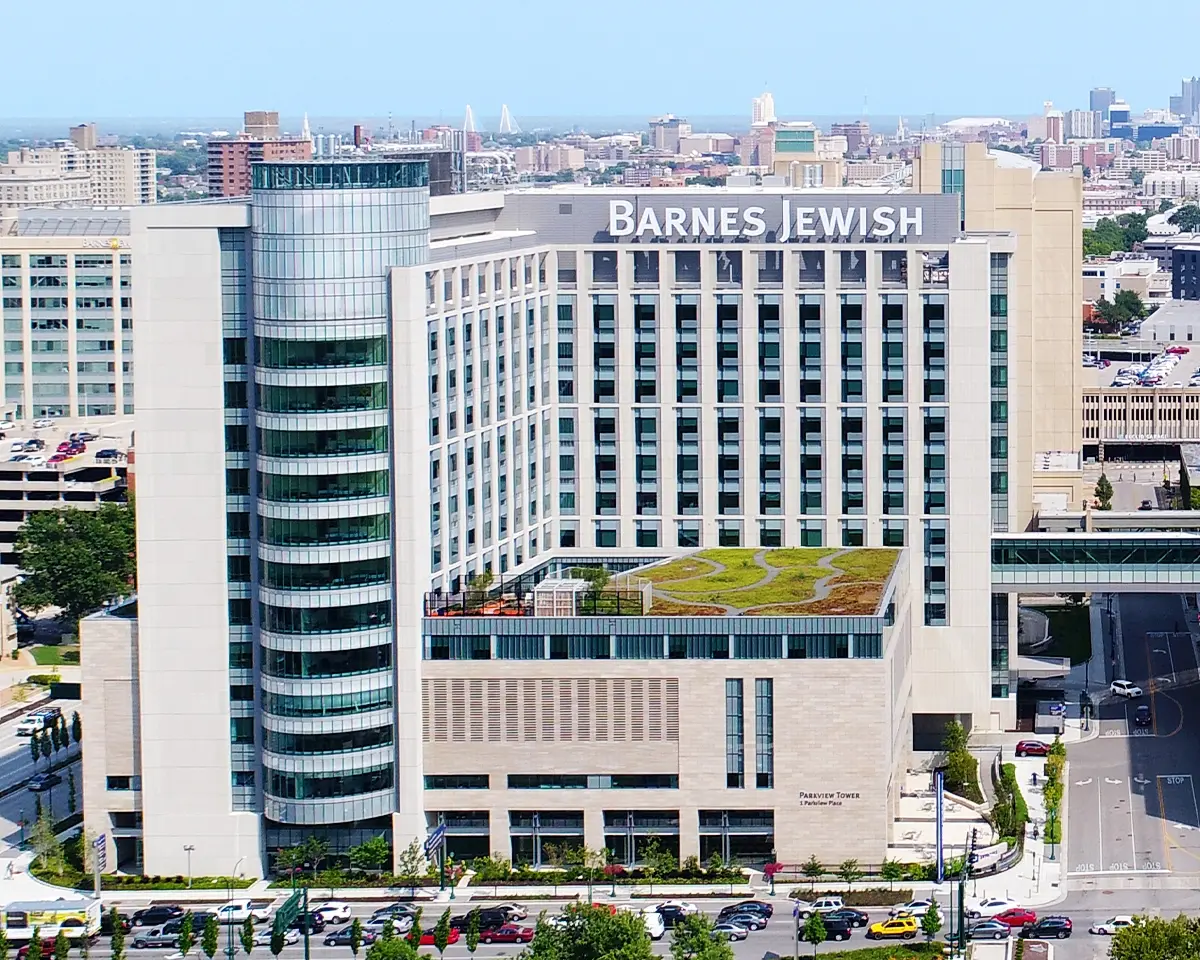Fetal Care Center
Knowing your unborn baby has special medical needs (a fetal condition) can be scary and overwhelming. You can rest assured that the world-class team at our Fetal Care Center, a partnership between Barnes-Jewish Hospital, St. Louis Children’s Hospital and Washington University Physicians, understands your concerns and has the expertise to deliver an unmatched level of care for mom and baby, all on one campus.
Barnes-Jewish Hospital, Saint Louis Children's Hospital and Washington University physicians work with referring providers across the region to deliver a level of extraordinary care that is only offered by very few places across the country. We offer family-focused care to help you and your unborn baby stay as healthy as possible. A team of maternal, fetal and pediatric specialists are beside you through a high-risk pregnancy, delivery and beyond, providing the tests, treatments and support you need.
When you come to the Fetal Care Center, you benefit from:
Integrated care for mom and baby: We’re the only medical center in St. Louis offering the highest level of specialized mom and baby care in a single location. Our birthing suites and mother-baby rooms connect to our Level IV newborn intensive care unit (NICU), so you are close by if your baby needs special care after delivery.
Specialized fetal surgeries: We’re one of the few medical centers in the country providing complex fetal surgeries and interventions for rare fetal conditions. Our highly skilled fetal and pediatric surgeons perform these procedures while your baby is still in the womb.
Expertise in follow-up care: Some babies have health needs that we can’t treat until after they’re born. If this happens, we develop a care plan during pregnancy, ensuring your baby receives the best care immediately after delivery.
Advanced diagnostic tools: Our specialists perform thousands of high-risk pregnancy tests each year to diagnose fetal conditions quickly and accurately. Our maternal-fetal medicine specialists are present during your ultrasounds, so you receive fast, accurate information about your unborn baby’s condition.
Heart care: Our fetal and pediatric cardiologists at the Fetal Heart Center at St. Louis Children’s Hospital provide exceptional care for babies with heart defects. Our heart specialists excel at diagnosing and treating heart problems.
Medical transportation: You may go into labor outside the St. Louis metropolitan area and need specialized care. If this happens, our maternal-fetal transport team can take you to the Women & Infants Center, a partnership between Barnes-Jewish and St. Louis Children’s Hospital. Should you deliver elsewhere, our newborn transport team can safely bring your baby here.
Collaborative approach: Specialists and sub-specialists across multiple disciplines work together to coordinate your care, so you can focus on staying well. Maternal-fetal medicine specialists collaborate with fetal surgeons, neonatologists, genetic counselors, specialized radiologists and other providers. Our team approach gives you and your baby the best possible outcome.
Amanda and Kyle were eagerly awaiting their third child, Barrett, when Amanda’s 20-week ultrasound revealed her baby had CDH, congenital diaphragmatic hernia.
At their 17-week appointment, Sara and Stephen discovered their identical twin girls were experiencing complications from twin-to-twin tranfusion syndrome and needed quick intervention.
Finding out your baby has a medical condition can be scary and overwhelming. But you won’t be alone – the region’s leading specialists are beside you for guidance and support at every step.
At our Fetal Care Center, a nurse coordinator guides you along the journey, helping to schedule appointments, answer your questions and liaises with other providers. You may undergo tests and meet with maternal-fetal medicine specialists, neonatologists and pediatric specialists. Neonatologists and pediatric specialists may care for your baby in the NICU after delivery. Learn more about newborn medicine.
Fetal conditions occur as your unborn baby develops in your uterus. Some fetal conditions are genetic — inherited from a parent. Most fetal conditions occur for no known reason.
Fetal conditions we treat include:
We have the expertise and technology to identify and treat fetal problems as early as possible. We are also one of only a few centers in the nation that performs complex fetal surgeries. This means we perform surgery on your baby in the womb.
Surgeons at the Fetal Care Center use minimally invasive procedures during fetal surgeries when possible. These procedures require smaller incisions and have less risk of complications for you and your unborn baby.
If your child needs treatment after they’re born, we coordinate your care with pediatric surgeons at St. Louis Children’s Hospital.
 Barnes-Jewish Hospital
Barnes-Jewish Hospital
Schedule your appointment
Call (314) 362-9355 or (800) 392-0936 to schedule your appointment with a maternal-fetal medicine specialist.